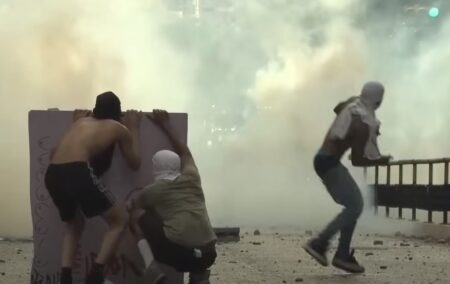When only 80% of the ballots had been counted, Nicolás Maduro declared that he had been reelected as Venezuela’s president with 51.2% of the vote.
Maduro’s dubious assertion demonstrated open contempt for accountability by the president of the country with the world’s largest proven oil reserves. It is much harder to hold accountable the governing elites of resource-endowed nations, as their interests and those of ordinary citizens do not naturally align well. This greatly increases the importance of constitutionally protected institutions like a free press, independent judiciary and legitimate elections.
Maduro’s mentor, the prior president of Venezuela and a fellow Marxist authoritarian, Hugo Chavez, systematically undermined the independence of their judiciary and then their legislative branch while recklessly advancing rampant patronage. South Africa is similarly vulnerable to toxic populism, given our mix of resource wealth and ultra-elevated youth unemployment. The geopolitics South Africa expressed during its ‘nine lost years’ reflected those biases and rather than being purged, they have been anchored in place.
Of the 910 official election observers from 95 countries, South Africa had sent 15 representing the ANC, SACP, and COSATU. South Africa’s observers were quick to declare the electoral process legitimate and they condemned allegations of fraud while expressing their support for the Venezuelan people’s right to choose their leaders without outside interference. Reflecting the disparate contours of today’s geopolitical landscape, the reactions among other international observers have been sharply divided.
Russia, China and Cuba, along with South Africa, promptly congratulated Maduro on his electoral win. The US initially expressed concerns while the presidents of Brazil, Mexico and Colombia called for Venezuela to release detailed voting tallies. Then, four days after the 28 July election, the US, citing “overwhelming evidence,” recognised the opposition party’s candidate, Edmundo Gonzalez, as the winner. Photo evidence, allegedly from 73% of the voting machine tally receipts, indicates Gonzalez received 70% of the vote. This coincides with pre-election polling which had indicated that Gonzalez and his banned ally, María Corina Machado, are twice as popular as Maduro and his party.
Considerably smaller numbers
Tens of thousands of protesters have poured onto the streets of cities across Venezuela. Over a thousand have been arrested amid many injuries and at least a dozen fatalities, in this country with a long tradition of military coups. There have also been videos, and journalists’ accounts, of soldiers siding with anti-Maduro protesters. All the while, Maduro partisans have been as public and as vocal, but seemingly in considerably smaller numbers.
Suddenly, far more countries than usual are coping with hectic political turbulence. Such challenges are set against a global backdrop of authoritarianism continuing to gnaw at the appeal of representative forms of government. Concerns about inflation and immigration are now mixing with rising outbreaks of ethnic clashes. As millions have emigrated from Venezuela due to Chavez and Maduro devastating that nation’s economy through extraordinary corruption and incompetence, there have also been anti-Maduro protests in the US, Spain and multiple Latin American countries.
What do you think should happen now? The easiest and most likely option is to accept the status quo. Amid unconfirmed reports of soldiers arriving from Russia and Cuba, betters currently give Maduro about a 75% chance of prevailing.
As Venezuela has a long history of military coups, Maduro might trust foreign soldiers more than his own. But it is easy to imagine such a reliance backfiring if, say, Russian mercenaries are seen killing large numbers of protesters, seemingly at the government’s behest.
Sanctions lifted, reimposed
Maduro’s swiftly and brazenly declaring himself the winner suggests that he is confident the US will not act decisively against him. Late last year in Barbados, the Biden administration agreed to reduce sanctions on Venezuela contingent upon the Maduro government committing to hold free and fair presidential elections. Sanctions were lifted but then reimposed when it quickly became clear that the Maduro regime wasn’t pursuing legitimate elections.
Maduro’s calculus seems to be that the US wouldn’t consider intervening unless the country descended into a full-scale civil war and by then he would have needed to survive multiple coup attempts.
Little imagination is required to envisage 2029 South Africa being in a situation similar to Venezuela’s today. Maduro’s key supporters would be vulnerable to criminal prosecution if he is ousted while many more benefit from his patronage. Venezuela’s geopolitical alignments are also similar to South Africa’s. Both nations’ leaders appear more comfortable meeting with their counterparts in Russia or China than with Western heads of state.
Venezuela and South Africa have decisively underperformed economically with heavy long-term consequences. Yet, as the recent election here was generally successful, we can be hopeful while honing our skills at holding elected officials accountable.
[Image: Confidencial, https://commons.wikimedia.org/w/index.php?curid=151017614]
The views of the writer are not necessarily the views of the Daily Friend or the IRR
If you like what you have just read, support the Daily Friend

